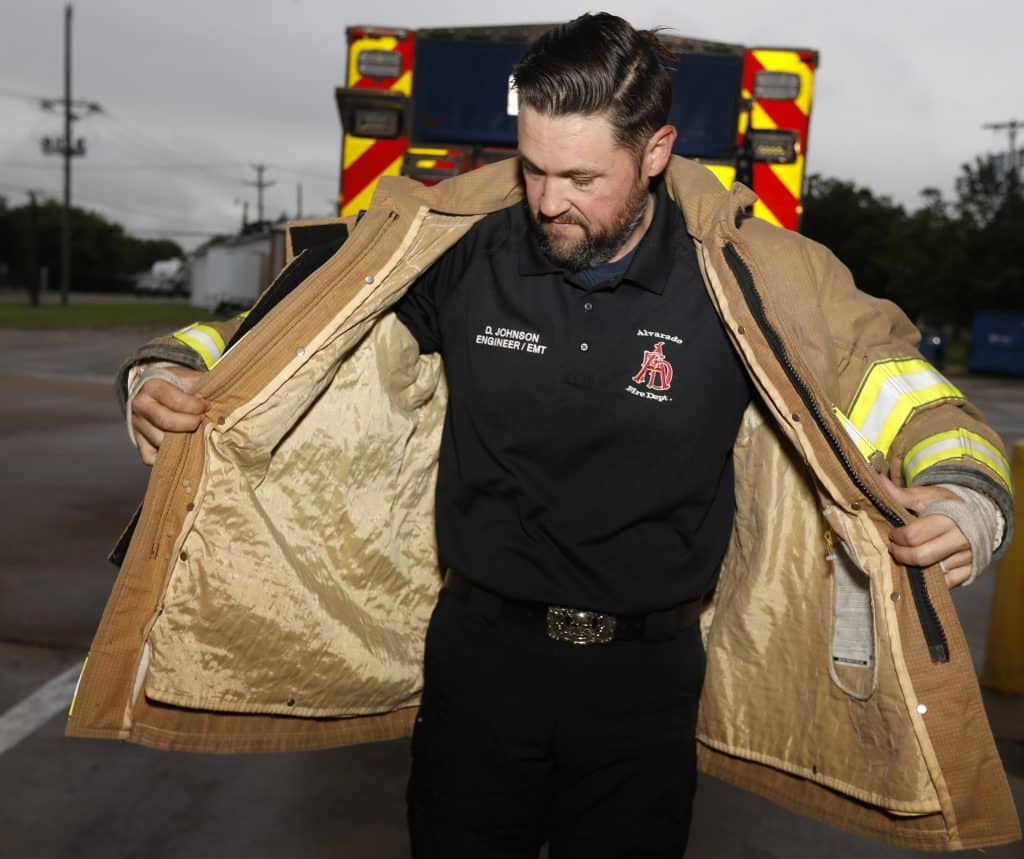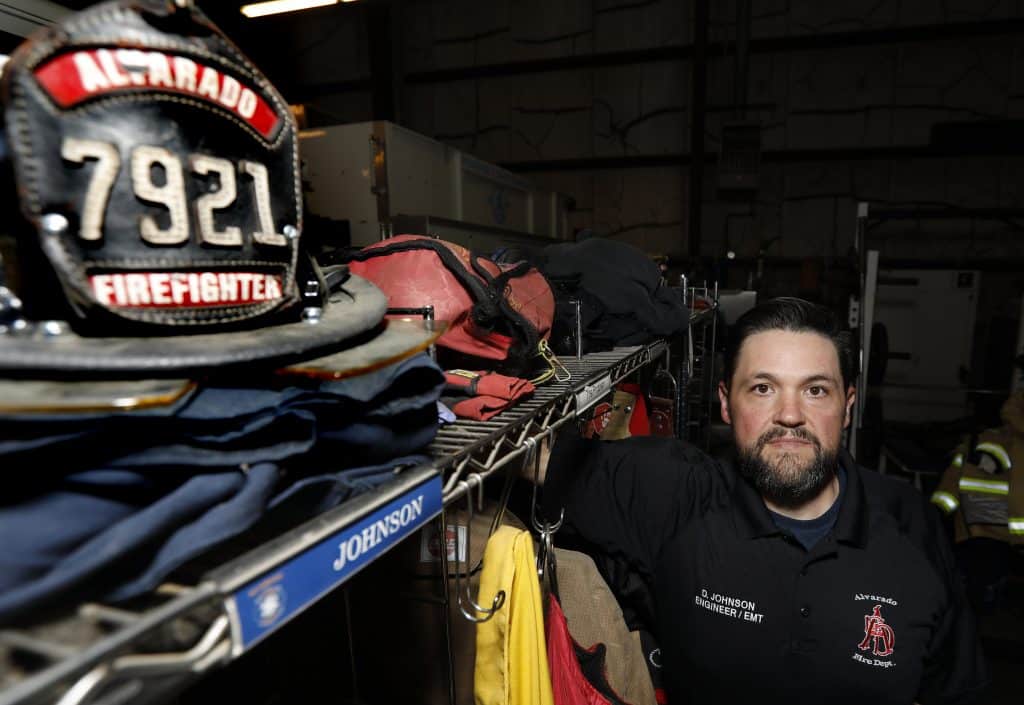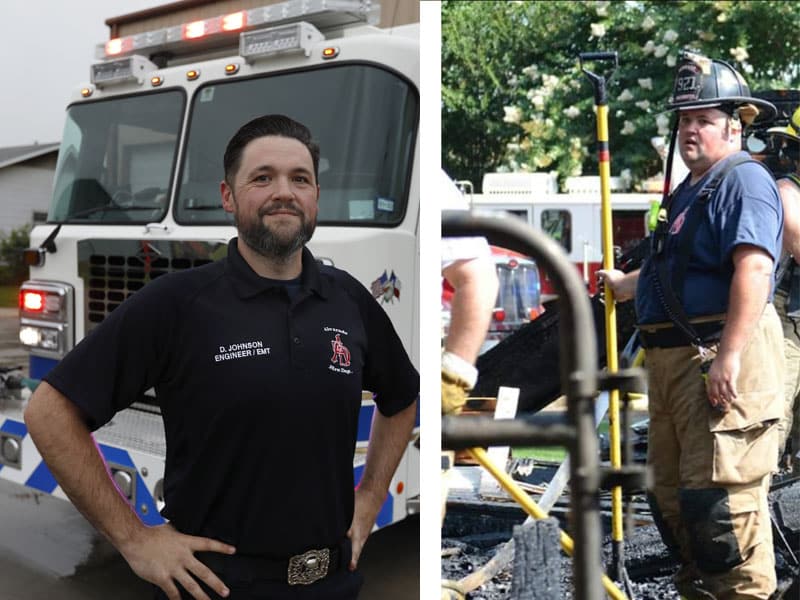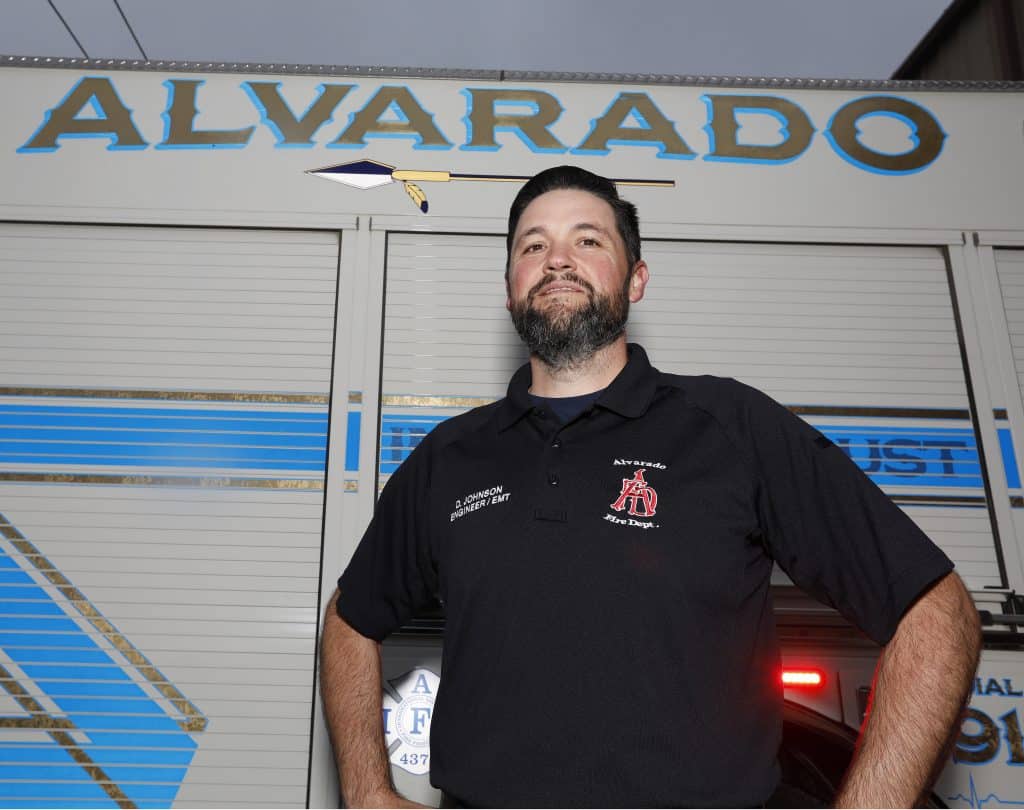Weight-loss surgery gave Alvarado fireman Doug Johnson a fighting chance at overcoming obesity and the many health problems that came with it.
Doug was always a big guy. In high school, the 6-foot-tall athlete weighed 220 pounds and dominated football, baseball, track, and tennis. In his 20s and 30s, Doug continued to eat like an athlete in training and packed on the pounds.
Eventually, his weight reached 350 pounds. That had consequences on his health: He was borderline diabetic and suffered from sleep apnea, hypertension, high cholesterol, and regular headaches, among other issues.
“I was always tired — that was the story of my life,” Doug says. “I couldn’t be out in the sun or the heat. Everything was very taxing on me.”
Heart disease also runs in Doug’s family. His brother died from a heart attack at age 32, leaving behind four kids. That loss was never far from Doug’s thoughts.
“I wanted to live to see my three kids grow up,” he says. At that point, he didn’t have enough energy to play with them.
Doug also worried about how his weight could affect him on the job.
“I didn’t know if my co-workers — guys half my size — would be able to drag me out of a burning building if something happened,” he says.

Doug shows off what he calls his “fat jacket,” gear that once fit snugly but now hangs loose on his frame.
HEEDING THE ALARM
After doing a lot of research and consulting with his wife, who is a nurse, Doug turned to bariatric surgeon Preeti Malladi, MD, FACS, medical director of bariatric surgery at Methodist Dallas Medical Center, to help him jump-start his weight loss.
“He had been struggling with his weight for a long time and had tried medication and just about every diet with only temporary results,” Dr. Malladi says. “Doug was a great candidate for a gastric sleeve.”
In this minimally invasive procedure, the surgeon removes the majority of the patient’s stomach using small incisions in the abdomen. After surgery, the stomach resembles a sleeve shape. Because it holds less volume, patients feel full quickly and eat less overall.
Doug met the main requirement for bariatric surgery — a body mass index of over 40 (or a BMI of over 35 with an obesity-related medical condition).
He diligently prepared for the procedure, which includes introducing a special diet under the guidance of a dietician, attending counseling with a psychologist, undergoing assessments with a fitness trainer, and enrolling in Methodist’s pre-op class, which educates patients on bariatric surgery.
“The patient is being supported from so many different angles,” Dr. Malladi says. “We care for each patient as an individual, and our care is very comprehensive. I involve other medical specialties if the patient has other medical conditions.”
‘HE LOOKS FANTASTIC’
Doug says his bariatric surgery couldn’t have gone better. “Everything was perfect, and everybody at Methodist took great care of me,” he says.
He lost more than 160 pounds as a result of the surgery. Now at age 40, Doug weighs less than he did in high school.
“These patients are transformed. It’s exciting to see the happiness and energy that they get from losing the weight, feeling better, and getting off of medications.”
— Dr. Malladi
Doug says his sleep apnea has resolved itself, he has a lot more energy for his three kids, and he’s finally shed his “fat jacket,” the oversized gear he once had to wear on the job.
“My captain was just as happy about my weight loss as I was,” he says. “He doesn’t have to worry about me as much on scene while we were trying to work.”
Bariatric coordinator Katherine Odom agrees Doug “looks fantastic.”
“He had a textbook perfect case,” says Odom, who runs the largest bariatric support group in North Texas out of Methodist Dallas. “After the surgery, he went home the following day and didn’t have any issues or complications, and the result was dramatic weight loss.”
That’s in no small part because of the commitment that Doug has made, Dr. Malladi says.
“Bariatric surgery requires a long-term commitment to lifestyle changes,” she continues. “Doug was successful because he committed to the process and followed instructions. He impressed us with his focus.”



